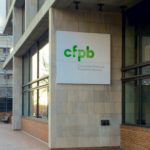I’m thrilled to announce that Bedard Law Group is the new sponsor for the Compliance Digest. Bedard Law Group, P.C. – Compliance Support – Defense Litigation – Nationwide Complaint Management – Turnkey Speech Analytics. And Our New BLG360 Program – Your Low Monthly Retainer Compliance Solution. Visit www.bedardlawgroup.com, email John H. Bedard, Jr., or call (678) 253-1871.

Every week, AccountsRecovery.net brings you the most important news in the industry. But, with compliance-related articles, context is king. That’s why the brightest and most knowledgable compliance experts are sought to offer their perspectives and insights into the most important news of the day. Read on to hear what the experts have to say this week.
Second Circuit Affirms Dismissal of FDCPA Suit Over Response to Unprompted Email
The Court of Appeals for the Second Circuit has affirmed a lower court’s ruling in favor of a defendant that was sued for violating the Fair Debt Collection Practices Act because the response to an email from the plaintiff did not constitute an initial communication under the statute. More details here.
WHAT THIS MEANS, FROM RICK PERR OF KAUFMAN DOLOWICH: This presents a novel issue that is highly suspect and agencies are warned to proceed with caution. The United States Court of Appeals for the Second Circuit affirmed a decision by the trial court holding that an unprompted response to an email from a consumer was not an initial communication. The appeals court distinguished prior cases cited by the consumer concluding that the agency itself never previously prompted the contact (it was the creditor here). However, the agency’s communication relayed the balance due and while the agency won this case, whether that result would be duplicated in another circuit is very questionable.
THE COMPLIANCE DIGEST IS SPONSORED BY:

Judge Grants MSJ for Defendants Over Missing File Number
Filing a lawsuit the day after being sued for an unpaid debt is not enough time for an individual to suffer emotional distress or financial loss, a District Court judge has ruled, granting a motion for summary judgment filed by two defendants in a Fair Debt Collection Practices Act case on the grounds the plaintiff does not have standing to pursue her claims in federal court. More details here.
WHAT THIS MEANS, FROM CHELSEY PANKRATZ OF FROST ECHOLS: Plaintiff in this case was a bit too zealous in her quick filing of this FDCPA case only one day after receipt of allegedly misleading correspondence. Plaintiff alleged that receipt of a summons and compliant filed against her without a case number was confusing and misleading. However, Plaintiff was able to locate said case number and include it in her filing of an FDCPA suit against the collection law firm only one day later. The court held that the missing case number on the pleadings Plaintiff received would likely not confuse a least sophisticated consumer, and that a “seemingly unintentional omission — does not fall under the kinds of abusive practices Congress sought to protect against when passing the FDCPA,” and that Plaintiff could not demonstrate she was harmed by the lack of a case number.
Judge Quashes Garnishment Against Owner of Payday Lending Company Accused of Hiding Millions to Avoid Fines
A District Court judge in Kansas has quashed a motion to garnish the property of an individual who was accused of fraudulently trying to hide $13 million in assets as a means of avoiding having to use them to settle $40 million in fines and penalties that were assessed in an earlier enforcement order by the Consumer Financial Protection Bureau, but denied the motion to quash the garnishments that was filed by the individual’s wife. More details here.
WHAT THIS MEANS, FROM BRENT YARBOROUGH OF MAURICE WUTSCHER: This decision involves the “other” FDCPA, the Federal Debt Collection Procedures Act (28 U.S.C. § 3001, et seq.). This other FDCPA gives the United States government expansive remedies for the collection of federal debts. I suppose the takeaway from this case is that the CFPB will aggressively utilize those remedies to collect judgments obtained in enforcement actions.
Judge Grants MTD in FDCPA Case With Laundry List of Claims
A plaintiff has learned that more is not always better when it comes to making accusations against a debt collector for violating the Fair Debt Collection Practices Act. Trying to claim that just about every statement in a collection letter or validation notice is a violation of the FDCPA did not survive a motion to dismiss from the defendant. More details here.
WHAT THIS MEANS, FROM HEATH MORGAN OF MARTIN GOLDEN LYONS WATTS MORGAN: This is a good case for the industry to continue to quash frivolous claims based on statements made in the Model Validation Notice. With pro-se litigants, it usually can be a losing battle for agencies to fight, because there is no way not to spend money and courts rarely grant sanctions against such litigants. However, by granting Defendant’s Motion to Dismiss, this Court has issued an opinion that not only provides relief for the agency, but also can be used by others in the industry to help fight frivolous litigation against sending a Model Validation Notice.
I’m thrilled to announce that Bedard Law Group is the new sponsor for the Compliance Digest. Bedard Law Group, P.C. – Compliance Support – Defense Litigation – Nationwide Complaint Management – Turnkey Speech Analytics. And Our New BLG360 Program – Your Low Monthly Retainer Compliance Solution. Visit www.bedardlawgroup.com, email John H. Bedard, Jr., or call (678) 253-1871.












